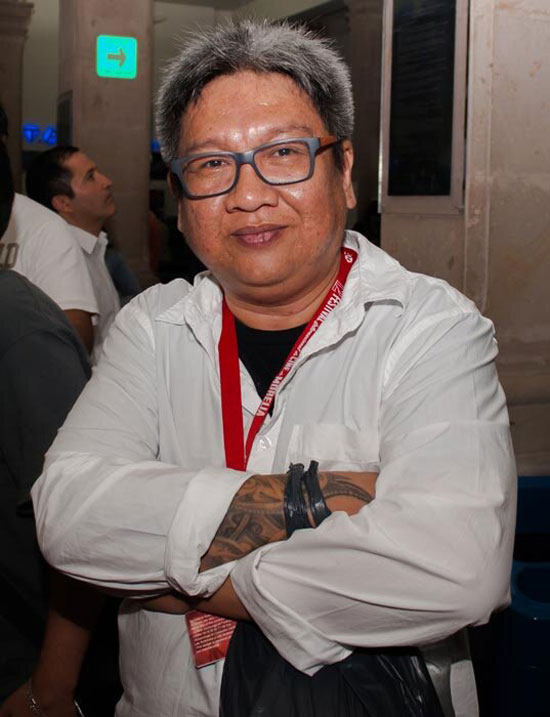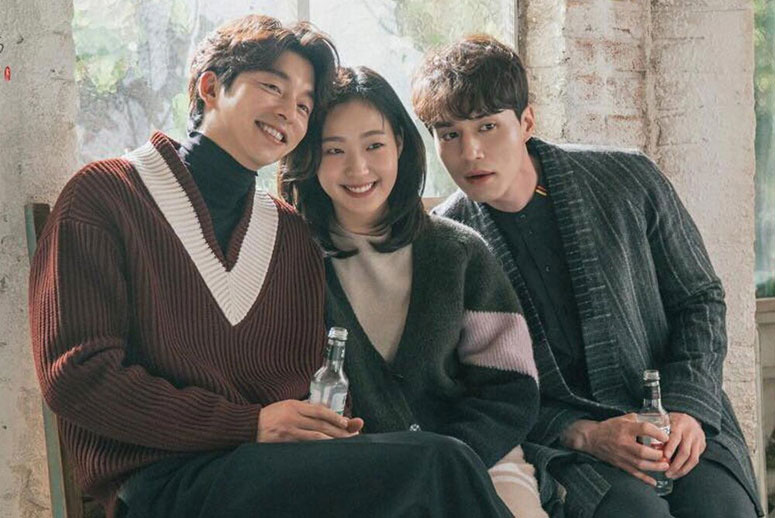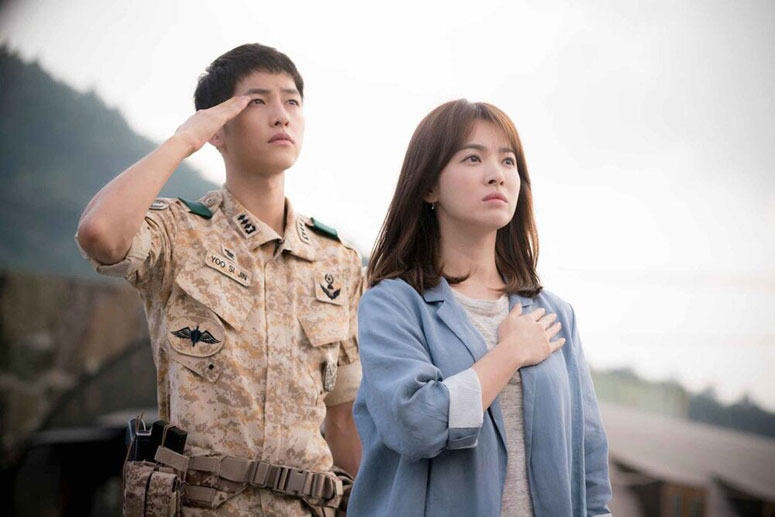K-dramas might save us yet
Hyun Bin’s image as the Asian Adonis has outstripped that of the Latin lover type of yore.
My mother hides her vice from me, although I have known it for years: her addiction to primetime Filipino soap operas, or teleserye. She has heard me warn her about its side effects on one’s frame of mind, that too many of its recycled plots of melodrama, bad scripts, bad acting and lack of nuance rob the psyche of levelheadedness. She knows that but doesn’t care. What are aesthetics when you need a visceral purge?
I had my taste of it, finally, at the onset of the pandemic lockdown. It wasn’t Filipino, though, it was Korean. My Facebook feed was raving over the latest drama, Crash Landing on You, which by now is popularly called by its acronym, CLOY.
Isolating myself in my hotel room in Cebu, where the first COVID-19 case was reported in February, I indulged in this high-drama drug and became one among thousands of women who swooned over the leading actor Hyun Bin, who plays a North Korean soldier who falls in love with a South Korean heiress who has accidentally parachuted past the demilitarized zone by accident.
The story has wrapped itself around many hearts, just judging from the many Facebook posts. There hasn’t been this kind of thrill over a heartthrob since Richard Gere or George Clooney (of my generation). Hyun Bin is a cross between an Okinawan bartender I met in Kyoto and a Coast Guard officer I interviewed in Kure, who both made me giddy even though they could not speak English. It occurred to me that Hyun Bin’s image as the Asian Adonis has outstripped that of the Latin lover type of yore.
And then there is the unbeatable love story: suited in a military uniform, the dashing officer conquers all to be with the woman he loves across the political divide. His alluring cheekbones, tenor voice, sexy dimples and Adam’s apple are the attributes of a knight in shining armor. But I had to stop a third of the way, uncomfortable as I had become swallowing this new telenovela elixir. Like, it was silly but fun, implausible but exciting.
I got myself carried by the current when I was back at home in Manila under a quarantine that started in mid-March, with Netflix keeping me company in the evenings spent watching Capt. Ri (Hyun Bin) yearn for his love, Seri. Even a female friend who is a tough lawyer called CLOY the “happy pill” for Filipinos during the lockdown. CLOY, a breathtaking, elaborate, and sophisticated production, literally crashed into Filipino popular culture.

But Filipino film director Erik Matti created an online commotion with his tweet that the Philippine movie and television industry was doomed because of “K-drama galore,” which is “all about love in the midst of this pandemic.”
Seeing the wave of slap-back comments, I realized I was coming out of a cave, from a universe of another affliction, from the drama that my mother has been immersing herself in all these years.
Korean drama is huge and astonishing. I should have gathered that as soon as I saw a friend’s wife buried in piles of DVDs in her bedroom. I snapped out of it when Matti called the drama “faux Cinderella stories,” reminding myself that I should not waste years of self-therapy to become independent by waiting for a prince charming, even if he comes drop-dead gorgeous in a turtleneck.
This is where Korean drama diverges from the Pinoy teleserye, in the portrayal of women who, though they seem to have the ability to cry more buckets than our typical Maria Clara, are strong and, yes, independent beings capable of pursuing their own dreams regardless of the male species. And so, another light is cast on male roles, that perhaps teleseryes should raise their standard of what being a gentleman means.
K-dramas can really get under your skin so that at some point you’ll have to get used to man and woman standing apart and staring at each other for eons.
In Hyun Bin’s character and some others down the line, men have an equal share of strength and sensitivity. They pop out of nowhere when you need them most; they could weep in a show of vulnerability, and most of all, they can cook from scratch, wash your hair, and add aromatherapy to your bath. It’s the vision of a Renaissance man emerging from patriarchal Asian societies. If that’s the intention of K-dramas — I have no idea at all — then they have come of age.
My mother didn’t know that this phenomenon piqued my curiosity. When I called her caregiver to ask how she was doing, he blurted out that she was busy watching CLOY and that he had been told to keep it hush-hush from me. I didn’t tell her that I was already well into my second Hyun Bin film (Memories of the Alhambra) but intended to give this whole K-drama thing a rest, until a millennial friend suggested that I see Goblin, making sure I got fired up and recruited into the vast club of K-drama aficionados.
It takes courage to go through the first of the standard 16 episodes. It’s usually too slow, and you have to stop and replay to get the hang of it. Holed up in quarantine, you basically have no choice but to carry on. It’s somewhere in the fifth episode, when the romantic pair exchanges a very chaste kiss. The ball gets rolling at about midway. The ultimate test is whether you cry along with the story — what’s a drama for, after all?
My friend was worried sick that her recommendation would not live up to my expectations, more so because it would take a week of my time — at two hours a day, and four on the last because you’re sucked into it by then. I’ve got to hand it to the Koreans: they’ve learned to wreak havoc over our lacrimal glands.

Turns out I was far more taken in by Goblin than by CLOY. If I’d known better, I’d say the makers of CLOY (2019-2020) borrowed/copied distinct elements from Goblin (2016-2017): the thing about destiny; the overseas fairytale setting (CLOY in Switzerland, Goblin in Canada); the wildflowers; the hook of the arm for an embrace from the back; the man showing up for real in what could only happen in daydreams.
CLOY’s advantage is in its political backdrop (the Korean north and south divide, a mainstay of current events); the seamless editing with flashbacks; its soaring musical score fit for a Last Song Syndrome. I daresay, however, that Goblin (Gong Yoo, the Train to Busan guy) acts better, and from the looks of it, kisses better, and also sings better off-screen. Sorry, Hyun Bin fans.
K-dramas can really get under your skin so that at some point you’ll have to get used to man and woman standing apart and staring at each other for eons. You’ll see a fetish for foot scenes and audio-magnified footfalls. You’ll notice the subtle product placement ads; for example, how can all the cast members be driving brand-new luxury cars and using Samsung phones? You’ll learn that Subway is their preferred fast-food sandwich and that they never tire of eating platefuls of fried chicken and sipping coffee, milk tea, or a branded Korean Soju.

During the lockdown, I decided to veer away from the actors when choosing what next to watch by following the works of the scriptwriter instead. Because of Goblin, I discovered Kim Eun-sook’s other works in the past five years. Descendants of the Sun (2016) is an eye-opener to her story development without hype, to secondary characters fleshed out. Descendants, which gives a more realistic picture of military life, is a better drama because Kim Eun-sook is able to explore professional duty, patriotism, and the contrast between a physician's task and a soldier's (doctors heal, soldiers kill) in a very human way, not didactic at all.
I followed this with Mr. Sunshine (2018), which is her masterpiece in 24 historically set episodes, during the Japanese occupation of Korea. Without a single kissing scene (spoiler alert), the narration flows with strong dialogue that makes each character come to life, bringing out the best in actors who play roles big or small. Every episode is like turning the pages of a novel written by Isabel Allende. And with three men in love with the heroine, the film explores their natures and their friendship despite the competition, and their love of country to the very end.
Kim Eun-sook is the same screenwriter who created the recently completed series The King: Eternal Monarch, which initially received flak in Korea, but whose genre mixture of thriller, science fiction, and romance is so fascinating I followed it to the middle of June, by which time the quarantine in Manila was eased. The King has a fantastical arc of a story, about parallel worlds, with scenes a lot more subdued, the romance bubbling slowly beneath the surface, and with some shades of the Goblin drama.
If you think Hyun Bin’s face is perfectly chiseled in the right places, The King (Lee Min-ho) is a fine work of sculpture, tall as a model with aquiline nose. Goblin’s bride played by Kim Go-eun, a Gong Li in the making and a natural beauty. She may not have had more cosmetic surgeries than other stars, yet Koreans have criticized her for looking “plain.” The neck kiss in the 12th episode shook viewers, who complained about the confusion of the plot in which the suspense is as gripping as a Fred Vargas detective novel; it makes you think. They fail to see the brilliance of the script, which does not conform to cut-and-dried romance, and has a finale that’s a tad happier than Goblin’s.
The K-dramas' themes of true love, patriotism, service to country, lasting friendships and filial ties, principles, and dignity might somehow refresh our withering values.
My affair with K-drama may not last long, because it is so time-consuming and often too elaborate. I straddle between the genre and others, like European thrillers, Japanese anime or simple American rom-coms for a respite. Last time South Korea was on my radar, we were one step ahead of them in booting out a dictator, in the 1980s. They’ve made leaps and bounds in more than three decades, capping that with winning the Oscar’s best picture award early this year.
South Korea was among the first to contain the pandemic, with an aggressive mass-testing strategy that the Philippines couldn’t follow. Watching K-dramas in the middle of a health crisis brought to mind an essay written by a South Korean student who lived in the Philippines years ago. It made the email rounds with the message that Filipinos didn’t love their country as much they should, and that loving the country was what made South Korea succeed.
We get the deal of the dramas on our end, as the antidote to our present worries. The Korean telenovelas might be the buffer to Chinese-inspired propaganda claiming our territorial waters, or the balm to our divided society. Their themes of true love, patriotism, service to country, lasting friendships and filial ties, principles, and dignity might somehow refresh our withering values. So, when my mother says she can’t have enough of Hyun Bin, I tell her, go ahead, you may watch CLOY all you want, and much more from the long list of K-dramas.
Banner caption: Son Ye-jin and Hyun Bin of the hit Korean drama series Crash Landing on You


